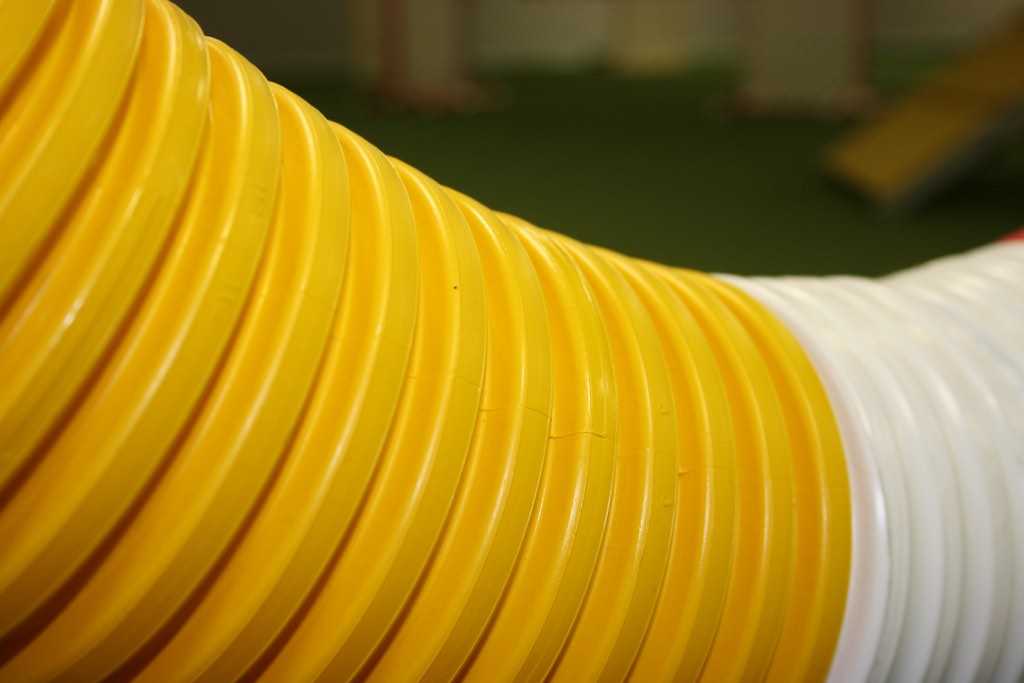Do You "Handle in Drive"?
03 Jun 2010
People always talk about dogs “having drive” but I am starting to think it can be more important for the handler to have drive. I started thinking about Handler Drive when I was having problems in Snooker with Meeker. At one point we were 0 for 8 qualifying in Starters Snooker. At the sidelines at local agility trials I’ve also seen many agility runs end with an NQ due to lack of handler drive.
It is often said that the handler needs to be the leader of the team on the course. But there is more to it than that.
My problem was I’d over think all the possible ways we could handle the course and the ways things could go wrong and I was I found that when I was confident and always cuing where we were going then Meeker wouldn’t take the off course obstacles we were passing. We started qualifying and earning Super Qs. I didn’t teach Meeker special snooker skills, train verbal cues, or change my handling. I changed my mental approach to the game. It is that mental change that I call “Handler Drive”.
Handler Drive consists of three primary attributes: confidence focus, and intensity
The critical mental changes I made were: having confidence in our training, having confidence in my dog’s abilities, having confidence in my handling plan, being a proactive handler on course, and focusing on my execution and intensity.
course analysis course planning handler skills dog skills
You can talk about being “in the moment” but I don’t know if that is something you can train for. I think it occurs naturally when you are handling in drive.
If you watch the top handlers and look at their demeanor as they enter the ring they are confident. They have the ability to push aside their concerns and focus on executing on course.
The dog should never have to look to you asking “what next?”, you have to make that information available before or at least as the dog needs it. The handler should be cuing the next (relevant) obstacle in an almost unrelenting manner. This takes confidence in the handler and in the dog’s abilities. The handler still needs to be aware of and adapt to their dog’s performance as it happens.
I like to say the confident (driven) dog will “punish” the tentative handler. They will drive to another obstacle (often the incorrect one) if the handler doesn’t give them the direction they need. For the inexperienced handler this is frustrating and can cause the handler to blame the dog. Handlers that fail to reward or even punish this type of behavior can end up training the drive out of their dog.
The less driven dog will just slow down; assuming it will take the handler a while to figure out what to do next. This can become a vicious cycle that creates the dog that runs only as fast as their handler.
How can you create handler drive?
When I talk about Handler Drive I use the word confidence a lot. Confidence is the base or cornerstone on which Handler Drive is constructed. Consequently, doubt is like building your handling on quicksand. Doubt is your enemy. When it comes time to run the course you can’t doubt. It is time to confidently execute your plan.
Ever step to the line still undecided about how you’ll handle a part of it? Do you always qualify in those situations?
Ever have a thought on course like “we got through the hard part” or “only three obstacles to the finish”. Ever notice that your Q goes out the window shortly afterwords? That loss of focus is all it takes to kick your handling out of drive.
Know the course. Don’t care if your friends or favorite trainer only walk the course once. Do what you need to do to have that course firmly ingrained in your mind and body.
Have a plan.
Forgot the course? Drive off course! I’d rather show my dog clear direction and have them not even think to second guess my direction. Your dog shouldn’t know that you are running the wrong course. If you have to be on the right course, circle around and do the sequence the correct way.
Your dog takes an off course. What did you do? Don’t be too quick to blame the dog. Yes sometimes the dog ignores a cue; but most of the time the handler is late, late, late!
If you enjoyed this article won't you please:  Thanks!
Thanks!
